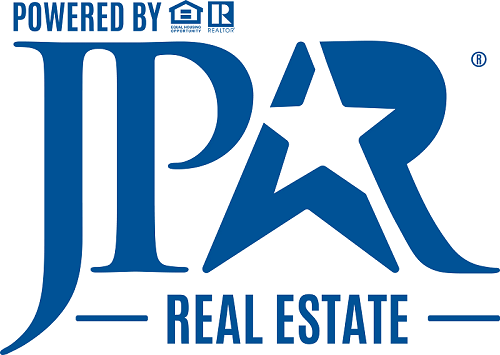Short Sale vs. Foreclosure – What’s the Difference?

Analysis of the User’s State of Mind
If you’re reading this, you’re likely feeling trapped and overwhelmed. The stress of missed mortgage payments, the looming threat of foreclosure, or the confusion around what a short sale entails has left you searching for answers. You want to know which option—short sale or foreclosure—will cause the least financial and emotional damage. You’re also likely looking for ways to move on quickly and regain stability. This blog will provide a clear comparison of these two options and introduce an alternative that can help you avoid their pitfalls altogether.
Short Sale vs. Foreclosure: What Are They and How Do They Differ?
When you’re unable to keep up with your mortgage payments, two common options are short sales and foreclosures. Both provide a way to resolve your debt, but they differ significantly in their process, impact on your credit, and long-term consequences.
Short Sale: A Financial Lifeline With Caveats
A short sale occurs when your lender agrees to let you sell your home for less than the outstanding mortgage balance. While it may seem like a better alternative to foreclosure, it comes with its own set of challenges and benefits.
The Benefits of a Short Sale
- Reduced Credit Damage:
One of the primary reasons homeowners opt for a short sale is its lesser impact on their credit score. While a foreclosure can slash your score by 200-300 points, a short sale usually reduces it by only 85-160 points. - Quicker Financial Recovery:
With a short sale, you could be eligible for another mortgage in as little as two years, compared to the five-to-seven-year wait after a foreclosure. - Maintained Dignity and Control:
Short sales don’t carry the same public stigma as foreclosures. You remain involved in the process, which allows you to maintain some control over the sale of your home.
The Drawbacks of a Short Sale
- Lengthy Approval Process:
Short sales are notoriously slow. It typically takes 3-6 months, but delays can push it beyond a year. Every step requires lender approval, prolonging the uncertainty. - Potential Tax Implications:
The IRS may consider the forgiven debt as taxable income. For example, if your home sells for $50,000 less than what you owe, you could face a tax bill of up to $10,000, depending on your tax bracket. - No Financial Gains:
Unlike a traditional sale, short sales leave you with zero equity. Even worse, in some states, lenders can pursue a deficiency judgment for the remaining balance.
Example:
If you owe $300,000 on your mortgage but sell your home for $240,000, the lender forgives the $60,000 difference. However, unless you qualify for insolvency or other exceptions, the IRS could tax that $60,000 as income, leading to a substantial tax bill.
Foreclosure: The Final Stop With Long-Term Repercussions
Foreclosure happens when a lender seizes your property after you default on your mortgage. This legal process allows the lender to sell your home, often at auction, to recoup the remaining loan balance. While foreclosure may seem like a way to “wipe the slate clean,” it comes with severe consequences.
The Impacts of Foreclosure
- Severe Credit Score Damage:
Foreclosure is one of the worst marks on your credit report, reducing your score by 200-300 points. This can make it extremely difficult to secure future loans or even rent a home. - Public Record and Social Stigma:
Unlike short sales, foreclosures are a matter of public record. This can impact your ability to find housing or even affect job opportunities, as employers and landlords may view it as a red flag. - Lengthy Financial Recovery:
Foreclosures remain on your credit report for up to seven years. During this time, securing a new mortgage or other forms of credit will be challenging.
Hidden Costs of Foreclosure
- Legal and Administrative Fees:
The foreclosure process often incurs thousands of dollars in additional costs, which the lender may add to your total debt. - Deficiency Judgments:
In some states, lenders can pursue the difference between the auction sale price and the outstanding loan amount, leaving you in debt even after losing your home. - Emotional Toll:
The process of losing your home to foreclosure can be emotionally devastating, impacting your mental health and family stability.
Example:
Imagine you owe $200,000 on your home. It sells at auction for $170,000, leaving a $30,000 shortfall. Depending on your state, your lender might pursue you for that $30,000 plus legal fees, leaving you with lingering debt even after the foreclosure.
The Hidden Costs of Both Options
Both short sales and foreclosures come with hidden costs that can extend beyond the immediate financial hit.
Short Sale Hidden Costs
- Tax Burdens: Forgiven debt may be considered taxable income, potentially resulting in a significant tax bill.
- Extended Sale Timelines: The lengthy approval process can prolong financial instability and stress.
Foreclosure Hidden Costs
- Legal and Administrative Fees: Foreclosure often comes with additional costs, increasing your total debt.
- Deficiency Judgments: Even after losing your home, you may still owe money to the lender.
Why Selling for Cash Is the Better Option
If both short sales and foreclosures seem daunting, consider a third option: selling your home for cash. This approach offers several advantages that can help you avoid the pitfalls of traditional methods.
The Advantages of a Cash Sale
- Fast Closing Times:
Cash sales can close in as little as 7-14 days, compared to the months-long short sale or foreclosure process. This allows you to move on with your life quickly and avoid prolonged financial stress. - No Credit Impact:
Unlike short sales or foreclosures, selling for cash doesn’t negatively impact your credit score. This keeps your financial health intact, allowing you to secure future loans or mortgages without delay. - Avoids Hidden Costs and Fees:
Cash buyers often cover all closing costs, meaning no realtor commissions, repair costs, or legal fees. You get the full agreed-upon amount without any deductions. - Immediate Relief and Flexibility:
By selling for cash, you gain immediate financial relief and the flexibility to use the proceeds for your next steps, whether that’s paying off debt, relocating, or starting fresh.
Example:
Let’s say your home is worth $200,000. A cash buyer offers $195,000 and covers all closing costs. Unlike the uncertainty of a short sale or foreclosure, you receive $195,000 in hand, allowing you to clear your mortgage and potentially walk away with cash to spare.
For more tips on stopping foreclosure, check out our guide: How to Stop the Bank From Foreclosing on Your Frisco House.
Comparing the Costs: Short Sale, Foreclosure, and Cash Sales
| Option | Credit Impact | Timeline | Costs | Future Mortgage Eligibility |
|---|---|---|---|---|
| Short Sale | 85-160 points | 3-6 months | Tax on forgiven debt | 2-3 years |
| Foreclosure | 200-300 points | 6-12 months | Legal fees, judgments | 5-7 years |
| Cash Sale | None | 7-14 days | None | Immediate |
Conclusion: Make the Smart Choice for Your Future
Choosing between a short sale and foreclosure is never easy, but both options come with long-term financial and emotional consequences. From severe credit damage to potential deficiency judgments, the recovery process can take years. Fortunately, there’s a faster, more reliable solution: selling your home for cash.
At Gravitas Property Group, we specialize in helping homeowners like you avoid the stress and uncertainty of traditional selling methods. With a quick cash sale, you can close in as little as 7-14 days, avoid credit damage, and walk away with cash in hand—no hidden fees, no hassle.
Don’t let financial burdens weigh you down any longer. Learn more about stopping foreclosure and discover how Gravitas Property Group can help you take control of your future today.


